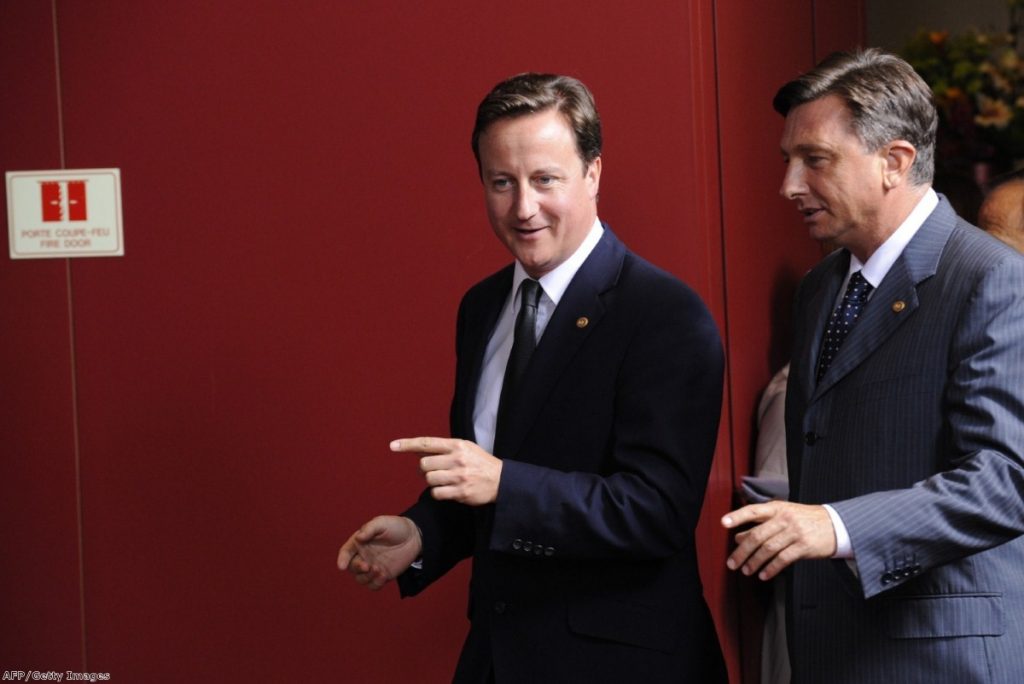Cameron claims victory: No British money for Greek bailout
By Ian Dunt Follow @IanDunt
Britain will not contribute any money to the Greek bailout, handing Downing Street a significant victory on the international stage.
David Cameron had come under pressure in Europe to assist with Greece's next 12 billion euro bailout, in a bid to prevent the country defaulting on its loan payments.
European Council president Herman Van Rompuy confirmed the money would come from eurozone countries, however, in the form of the European Financial Stability Facility.


Britain is not included in that grouping, although it will still participate in the bailout through the IMF contribution.
"The British, as we're not members of the eurozone, have not been involved in these discussion at all, so it would be quite wrong now to ask us to contribute," Mr Cameron said yesterday in a series of comments designed to placate his critics – not least of all the collection of eurosceptic Tory backbenchers starting a campaign in the Financial Times.
The Greek government is now in a race against time before its next payment on July 15th, with a crucial vote on its austerity package going before the parliament next week.
A combination of tax rises and spending cuts are expected to provide somewhere around £3.4 billion but plans to lower the threshold for income tax have proved particularly appalling to lower-income groups, many of which are struggling to get by as it is.
Greek media sources have reported that an offer of a one-off levy on higher salaries instead of a lowering of the income tax threshold was rejected by the EU and IMF after a closed-door session with the country's new financial minister.
The European Council meeting in Brussels today will also discuss internal border controls due to the ongoing crisis in north Africa as well as the situation in Libya, Syria and Israel.

